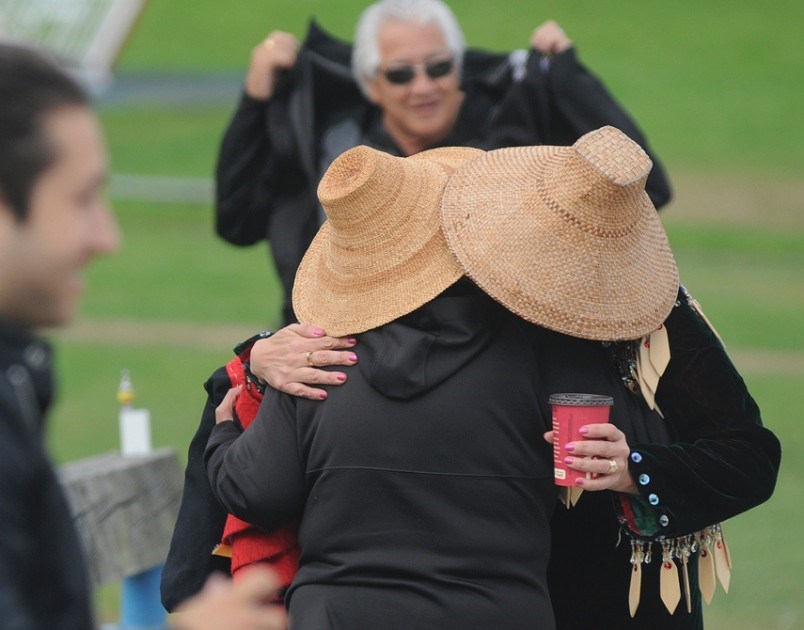The Tsleil-Waututh Nation presented Indigenous oral traditional evidence to the National Energy Board at a hearing in Nanaimo on Dec. 3.
A news release explained that the board heard new evidence about the environmental effects of Trans Mountain pipeline expansion including adverse effects of shipping to species at risk such as southern resident killer whales.
The oral traditional evidence focused on potential impacts the project would pose to the Tsleil-Waututh culture and way of life, including their cultural relationships with whales, and how the expansion, if approved, would violate Tsleil-Waututh laws.
The Tsleil-Waututh also filed scientific expert reports with the board as evidence regarding potential impacts from shipping.
Chief Maureen Thomas says the expansion violates the First Nation's laws and poses serious and harmful impacts to Tsleil-Waututh people and culture, as well to as their lands, waters, resources, and way of life.
"The Tsleil-Waututh Nation continues to uphold our obligation to protect and steward our lands and waters," Thomas said in a statement. "The Trans Mountain Expansion Project would violate our laws. Marine shipping from the Project would pose serious and harmful impacts to Tsleil-Waututh people and culture, as well to as our lands, waters, resources, and way of life. We are therefore taking this opportunity to present oral traditional evidence to the NEB. Tsleil-Waututh remains concerned about the harmful impacts of the proposed Trans Mountain Expansion Project."
The new hearings are being held after the Federal Court of Appeal quashed the original approval for the expansion, saying the federal government didn't adequately consult with First Nations or consider the impact of tanker traffic on the marine environment.
- with files from Canadian Press




